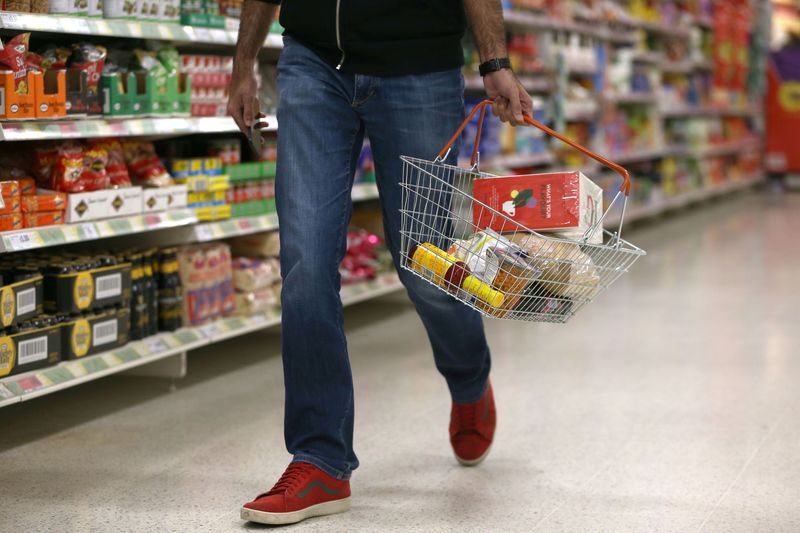By David Milliken
LONDON (Reuters) - British retailers reported weaker annual sales growth last month, reflecting growing pressure on consumer spending as well as seasonal factors around the timing of Easter which typically brings a boost to spending.
The British Retail Consortium (BRC) said total retail spending among its members - mostly large chains and supermarkets - was 3.1% higher than a year earlier, compared with 6.7% annual growth in February.
The BRC has estimated that prices among its members rose by 2.1% in the year to March - the biggest such increase in 11 years - making the increase in sales volumes that much smaller.
The Bank of England and economists are closely watching retail data for signs of a drop-off in consumer spending, as households face what government forecasters predict will be the biggest cost-of-living squeeze since records began in the 1950s.
"As consumer confidence continued to sink, March saw sales slow, and while spend remained above last year this likely reflects higher prices," BRC chief executive Helen Dickinson said.
Susan Barratt, chief executive of retail data company IGD, which provides the BRC with figures on food spending, said some poorer shoppers were already skipping meals to save money.
The broader official measures of consumer price inflation -- which includes a wider range of goods and services than the BRC measure -- hit a 30-year high of 6.2% in February.
By contrast, richer households may be shifting spending away from consumer goods and towards foreign holidays which COVID restrictions made difficult in previous years, said Don Williams, partner at survey sponsors KPMG.
Official data on Monday showed a big rise in holiday bookings in February as a wave of Omicron cases eased.
Comparisons with a year ago are complicated by the fact that Easter fell earlier in 2021 than in 2022, giving a boost to food spending in March, especially as pubs and restaurants were shut due to COVID restrictions. Non-essential shops were also closed, though supermarkets and online stores remained open.
The BRC said a 'like-for-like' measure, which only included retail locations which were open in March 2021, showed a 0.4% annual fall in spending.
Separate figures from payment processor Barclaycard, which sees around half of British credit and debit card transactions, showed a big jump in spending on fuel as petrol prices rose.

Almost half of households also said they would switch to budget or own-brand groceries to save money.
Overall card spending rose by 17.7% between March 2019 and March 2022, Barclaycard said. Consumer prices have risen by just over 8% over a similar period.